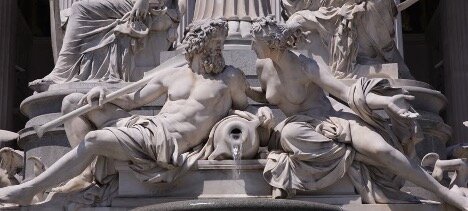By Alex Caban
Sculpture has not really received the attention it deserves compared to painting, photography, and modern Even intellectuals and philosophers of art do not recognize how difficult it is to make a sculpture art. Sculptural art stands out in its own classical and contemporary forms. Those who make it, know how difficult and delicate it is to make figurative sculpture art of a person. People over the years have raised questions about its ontology, representation, and person character. Thus they should truly appreciate the painstaking process it takes to make a truly remarkable sculpture art worth admiration.
The History of Sculpture Art
Before the 20th century, sculpture art was widely received and admired by people, especially in the Vatican City of Rome, where different sculptures portrayed angels and demons for the representation of religion. It became more than a tradition as all sculptures in the western world where the representation of celebrities. More and more sculptures began to be made as freestanding objects. As its progression grew, sculptures were made on famous old buildings and altarpieces. Sculptures are mostly made out of durable materials such as stone, bronze, plaster, and wood.
Much Deserved Recognition
As modern forms of art began to make their mark in digital, photography, materialism, sculpture making practices began to slow down over the years. Many sculpture statues and abstract works of Barbara Hepworth and Louise Nevelson are still appreciated but represented imaginary objects. The most intriguing thing about sculpture art is that they represent a world of its own. A single sculpture can define a whole story, whether it is an imaginary object, a historical figure, or a celebrity.
They are even famous for describing an environment, as we explore the meaning through them. Some sculptures can even tell secret coded messages or mysteriously point at something of importance, as shown in famous movies like National treasure andAngels and Demons. However, the treatment and the making of a sculpture is exceptionally delicate and expensive. Many people aim to distinguish the traditional divisions and importance of sculptures from paintings and architecture. Some have even discredited it as performance art. However, sculptures more than just figurative statues or three-dimensional non-art objects. They define a whole new meaning of art by its complex contours and should be held in high regard regarding its admiration and appreciation.



